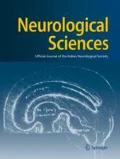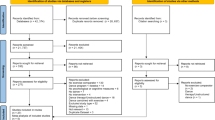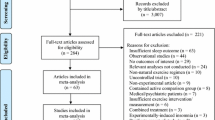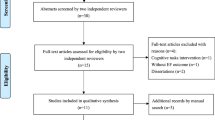Abstract
The background of this study is to determine whether there is an association between music intervention and cognitive dysfunction therapy in healthy older adults, and if so, whether music intervention can be used as first-line non-pharmacological treatment. The method used in this study is to conduct a systematic review and meta-analysis of clinical trials that examined the effects of music intervention on patient-relevant and disease-specific outcomes. A comprehensive literature was performed on PubMed, EMbase and the Cochrane Library from inception to September 2016. A total of 10 studies (14 analyses, 966 subjects) were included; all of them had an acceptable quality based on the PEDro scale score and CASP scale score. Compared with control group, the standardized mean difference was 0.03 (−0.18 to 0.24) for cognitive function as primary outcome by random effect model; secondary outcomes were included disruptive behavior, depressive score, anxiety and quality of life. No evidence of publication bias could be found in funnel plots, Begg’s test and Egger’s test. Subgroup analyses showed that intervention method, comparator, trial design, trial period and outcome measure instruments made little difference in outcomes. Meta-regression might not identify cause of heterogeneity. This study is registered with PROSPERO, number CRD442016036264. There was positive evidence to support the use of music intervention on treatment of cognitive function.



Similar content being viewed by others
Abbreviations
- CASP:
-
Critical Appraisal Skills Program
- CCT:
-
Controlled clinical trials
- MMSE:
-
Mini-mental state examination
- PEDro:
-
Physiotherapy Evidence Database scale score
- RCT:
-
Randomized controlled trials
References
United Nations. World Population Ageing 2013, Economic and Social Affairs Population Division ST/ESA/SER.A/348, United Nations, New York (2013) [Online]. http://www.un.org/en/development/desa/population/publications/pdf/ageing/WorldPopulationAgeing2013.pdf. Accessed 20 Dec 2016
Herrmann N, Black SE, Chow T et al (2012) Serotonergic function and treatment of behavioral and psychological symptoms of frontotemporal dementia. Am J Geriatr Psychiatry 20(9):789–797
Brodaty H, Burns K (2012) Nonpharmacological management of apathy in dementia: a systematic review. Am J Geriatr Psychiatry 20(7):549–564
De Oliveira TC, Soares FC, De Macedo LD et al (2014) Beneficial effects of multisensory and cognitive stimulation on age-related cognitive decline in long-term-care institutions. Clin Interv Aging 14(9):309–320
Shimizu N, Umemura T, Hirai T et al (2013) Effects of movement music therapy with the Naruko clapper on psychological, physical and physiological indices among elderly females: a randomized controlled trial. Gerontology 59(4):355–367
Vink AC, Birks JS, Bruinsma MS, Scholten RJ (2004) Music therapy for people with dementia. Cochrane Database Syst Rev (3):CD003477. doi:10.1002/14651858.CD003477.pub2
Irish M, Cunningham CJ, Walsh JB et al (2006) Investigating the enhancing effect of music on autobiographical memory in mild Alzheimer’s disease. Dement Geriatr Cogn Disord 22(1):108–120
Samson S, Clément S, Narme P et al (2015) Efficacy of musical interventions in dementia: methodological requirements of nonpharmacological trials. Ann N Y Acad Sci 1337:249–255
Zatorre RJ, Chen JL, Penhune VB (2007) When the brain plays music: auditory-motor interactions in music perception and production. Nat Rev Neurosci 8(7):547–558
Li HC, Wang HH, Chou FH et al (2015) The effect of music therapy on cognitive functioning among older adults: a systematic review and meta-analysis. J Am Med Dir Assoc 16(1):71–77
Moher D, Liberati A, Tetzlaff J et al (2009) Preferred reporting items for systematic reviews and meta-analyses: the PRISMA statement. Ann Intern Med 151(4):264–269 W64
Centre for Reviews and Dissemination (2009) Systematic Reviews: CRD’s Guidance for Undertaking Reviews in Health Care (Internet). University of York, York
Maher CG, Sherrington C, Herbert RD et al (2003) Reliability of the PEDro scale for rating quality of randomized controlled trials. Phys Ther 83(8):713–721
Guyatt GH, Sackett DL, Cook DJ (1993) Users’ guides to the medical literature. II. How to use an article about therapy or prevention. A. Are the results of the study valid? Evidence-Based Medicine Working Group. JAMA 270(21):2598–2601
Folstein MF, Folstein SE, McHugh PR (1975) “Mini-mental state”. A practical method for grading the cognitive state of patients for the clinician. J Psychiatr Res 12(3):189–198
Higgins JP, Thompson SG (2002) Quantifying heterogeneity in a meta-analysis. Stat Med 21(11):1539–1558
McClelland JW, Jayaratne KS, Bird C (2015) Use of song as an effective teaching strategy for nutrition education in older adults. J Nutr Gerontol Geriatr 34(1):22–33
Optale G, Urgesi C, Busato V et al (2010) Controlling memory impairment in elderly adults using virtual reality memory training: a randomized controlled pilot study. Neurorehabil Neural Repair 24(4):348–357
Hagen B, Armstrong-Esther C, Sandilands M (2003) On a happier note: validation of musical exercise for older persons in long-term care settings. Int J Nurs Stud 40(4):347–357
Thompson RG, Moulin CJ, Hayre S et al (2005) Music enhances category fluency in healthy older adults and Alzheimer’s disease patients. Exp Aging Res. 31(1):91–99
Im ML, Lee JI (2014) Effects of art and music therapy on depression and cognitive function of the elderly. Technol Health Care 22(3):453–458
Haslam C, Haslam SA, Ysseldyk R et al (2014) Social identification moderates cognitive health and well-being following story- and song-based reminiscence. Aging Ment Health 18(4):425–434
Hars M, Herrmann FR, Gold G et al (2014) Effect of music-based multitask training on cognition and mood in older adults. Age Ageing 43(2):196–200
Hars M, Herrmann FR, Fielding RA et al (2014) Long-term exercise in older adults: 4-year outcomes of music-based multitask training. Calcif Tissue Int 95(5):393–404
Maclean LM, Brown LJ, Astell AJ (2014) The effect of rhythmic musical training on healthy older adults’ gait and cognitive function. Gerontologist 54(4):624–633
Bugos JA, Perlstein WM, McCrae CS et al (2007) Individualized piano instruction enhances executive functioning and working memory in older adults. Aging Ment Health 11(4):464–471
Tesky VA, Thiel C, Banzer W et al (2011) Effects of a group program to increase cognitive performance through cognitively stimulating leisure activities in healthy older subjects: the AKTIVA study. Geropsych J Gerontopsychol Geriatr Psychiatry 24(2):83
Gerdner LA (2000) Effects of individualized versus classical “relaxation” music on the frequency of agitation in elderly persons with Alzheimer’s disease and related disorders. Int Psychogeriatr 12(1):49–65
Shum A, Taylor BJ, Thayala J et al (2014) The effects of sedative music on sleep quality of older community-dwelling adults in Singapore. Complement Ther Med 22(1):49–56
Chan MF (2011) A randomised controlled study of the effects of music on sleep quality in older people. J Clin Nurs 20(7–8):979–987
Patel AD (2003) Language, music, syntax and the brain. Nat Neurosci 6(7):674–681
Lindborg P, Friberg AK (2015) Colour association with music is mediated by emotion: evidence from an experiment using a CIE lab interface and interviews. PLoS One 10(12):e0144013
Wittwer JE, Webster KE, Hill K (2013) Effect of rhythmic auditory cueing on gait in people with Alzheimer disease. Arch Phys Med Rehabil 94(4):718–724
Ceccato E, Vigato G, Bonetto C et al (2012) STAM protocol in dementia: a multicenter, single-blind, randomized, and controlled trial. Am J Alzheimers Dis Other Demen 27(5):301–310
Acknowledgements
We thank the authors of primary studies for providing data and other critical information. And the authors would like to thank all researchers and participants for their valuable contributions to this article. This work was supported by the National Natural Science Foundation of China (ID 81371395), Liaoning Provincial Natural Science Foundation (ID 2015020547), and China Post-doctoral Science Foundation (ID 2015M581375) to Yi Sui.
Author information
Authors and Affiliations
Corresponding author
Ethics declarations
Conflict of interest
The author declares no conflicts of interest.
Electronic supplementary material
Below is the link to the electronic supplementary material.
Rights and permissions
About this article
Cite this article
Xu, B., Sui, Y., Zhu, C. et al. Music intervention on cognitive dysfunction in healthy older adults: a systematic review and meta-analysis. Neurol Sci 38, 983–992 (2017). https://doi.org/10.1007/s10072-017-2878-9
Received:
Accepted:
Published:
Issue Date:
DOI: https://doi.org/10.1007/s10072-017-2878-9




